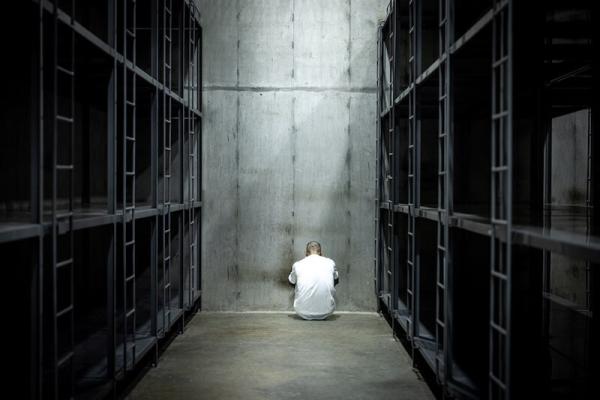One day after a surprise Democratic victory, many political onlookers are wondering if evangelicals are reconsidering the importance of character.
That was the question after the Dec. 12 special election in Alabama, in which the usually reliable and sizable Republican voting bloc underperformed to give Democrat Doug Jones a stunning, come-from-behind victory in his race for U.S. Senate.
To some evangelical watchers, the answer is obvious. Alabama, a deep-red state where white evangelicals can easily elect one of their own, could not stomach a flawed candidate like Roy Moore, who stands accused of sexual misconduct with teenage girls and holds a host of controversial views on gays, Muslims, women, and race.
“It’s clear many evangelicals stayed home,” said Al Mohler, president of the Southern Baptist Theological Seminary in Louisville, Ky. “I think it’s a clear message from evangelical Christians that they’re not going to support a candidate like Roy Moore.”
David French, senior writer for National Review, came to much the same conclusion: “Alabama conservatives told Steve Bannon and, yes, Donald Trump that integrity matters,” he wrote. “They told their party that some victories aren’t worth the cost.”
A Christianity Today headline proclaimed: “Roy Moore Was ‘a Bridge Too Far’ for Alabama Evangelicals.”
These and other pundits pointed out that white evangelicals made up 44 percent of voters in Tuesday’s Alabama election, compared with 47 percent of voters in the 2012 and 2008 presidential elections, a slight downturn.
They noted that no major evangelical leader in Alabama — and critically no major Southern Baptist pastor — came out to support Moore, though some lesser-known evangelical pastors did. (Their names were published by Kayla Moore, the Republican candidate’s wife, on her Facebook page.)
But at least one pollster said the idea that evangelicals were unwilling to forgive Moore for alleged sexual misdeeds would be a rash — and wrong — conclusion.
The reality is that 80 percent of white born-again Christians voted for Moore — nearly identical to the 81 percent of evangelicals nationally who voted for Trump in 2016. (Only 18 percent of white born-again Christians voted for Jones and 2 percent cast write-in votes.)
“This looks to me like pretty typical enthusiasm for a Republican candidate, even one as unconventional as Moore,” said Robert P. Jones, CEO of Public Religion Research Institute.
Indeed, added Jones, allegations of sexual misconduct did not seem to sway these voters. An overwhelming 94 percent of Republican voters said they did not believe allegations that Moore preyed on teenage girls 40 years ago, according to The Washington Post’s exit poll data.
“We’ve now got two candidates who in no way really fit the mold of values voters, and [evangelicals] brushed aside serious allegations and moved right past them,” said Jones, referring to Trump and Moore.
If anything decisive can be said about the Alabama race, it’s that African-American Christians, who also very often consider themselves evangelical, turned out in force.
Moore lost in large part because African-Americans — and particularly African-American women — voted overwhelmingly for Jones. In all, 96 percent of African-Americans supported Jones; that’s similar to the level of support they extended to then-President Obama in 2012.
“Sometimes people in the outside world assume evangelical is white evangelical and African-American and Latino and Asian-American evangelicals are in some other category when we’re not,” said Russell Moore, the chief ethicist for the Southern Baptist Convention. “We’re in one church. We’re united around the gospel. Corporately speaking, white evangelicals are a distinct minority in the evangelical movement.”
Moore was among a group of influential evangelicals who said they could not recommend voting for Roy Moore (no relation). The group included Ed Stetzer, executive director of the Billy Graham Center, at Wheaton College; and several prominent evangelical women such as Kay Warren, Beth Moore, and Nancy French.
The Alabama race led many writers, including Amy Julia Becker and Peter Wehner, to pen editorials such as Wehner’s “Why I Can No Longer Call Myself an Evangelical Republican.”
The growing prominence of dissident white evangelicals is an interesting development, said Brantley Gasaway, professor of American religious studies at Bucknell University.
“Trump, and now Moore, have increased the sensitivity of a minority but still significant group of evangelical leaders who really are saying, ‘We will not just support any candidate that the Republicans come out with, even if they are pro-life. That’s not enough.’ That’s a significant shift,” said Gasaway.
But in the end, it’s not clear how much if any influence this group had on rank-and-file white evangelicals in Alabama.
Charles T. Brown, a retired school teacher from Etowah County, Moore’s home district, said many fellow evangelicals were quite willing to overlook any character flaw others saw in Moore to advance objectives such as confirming conservative Supreme Court justices.
“People think we’re dumb,” said Brown, 70. “But we’re wise enough to understand cause and effect. We’re wise enough to understand how the Senate can affect nominees for the U.S. Supreme Court. Even if I knew everything Roy Moore is accused of were true, the Supreme Court and abortion are far more important. What’s the alternative? Helping the liberals ruin our country?”
Got something to say about what you're reading? We value your feedback!






